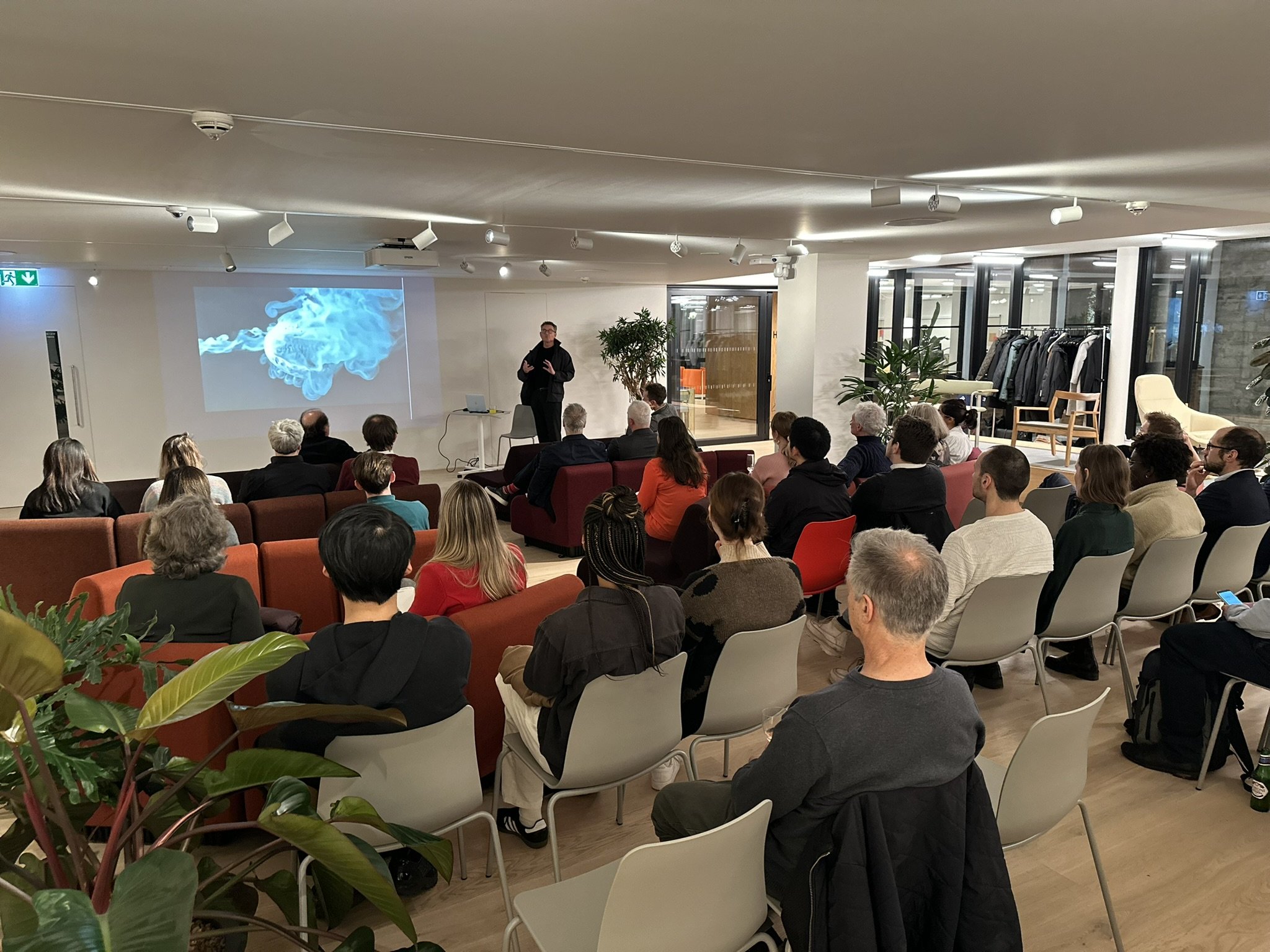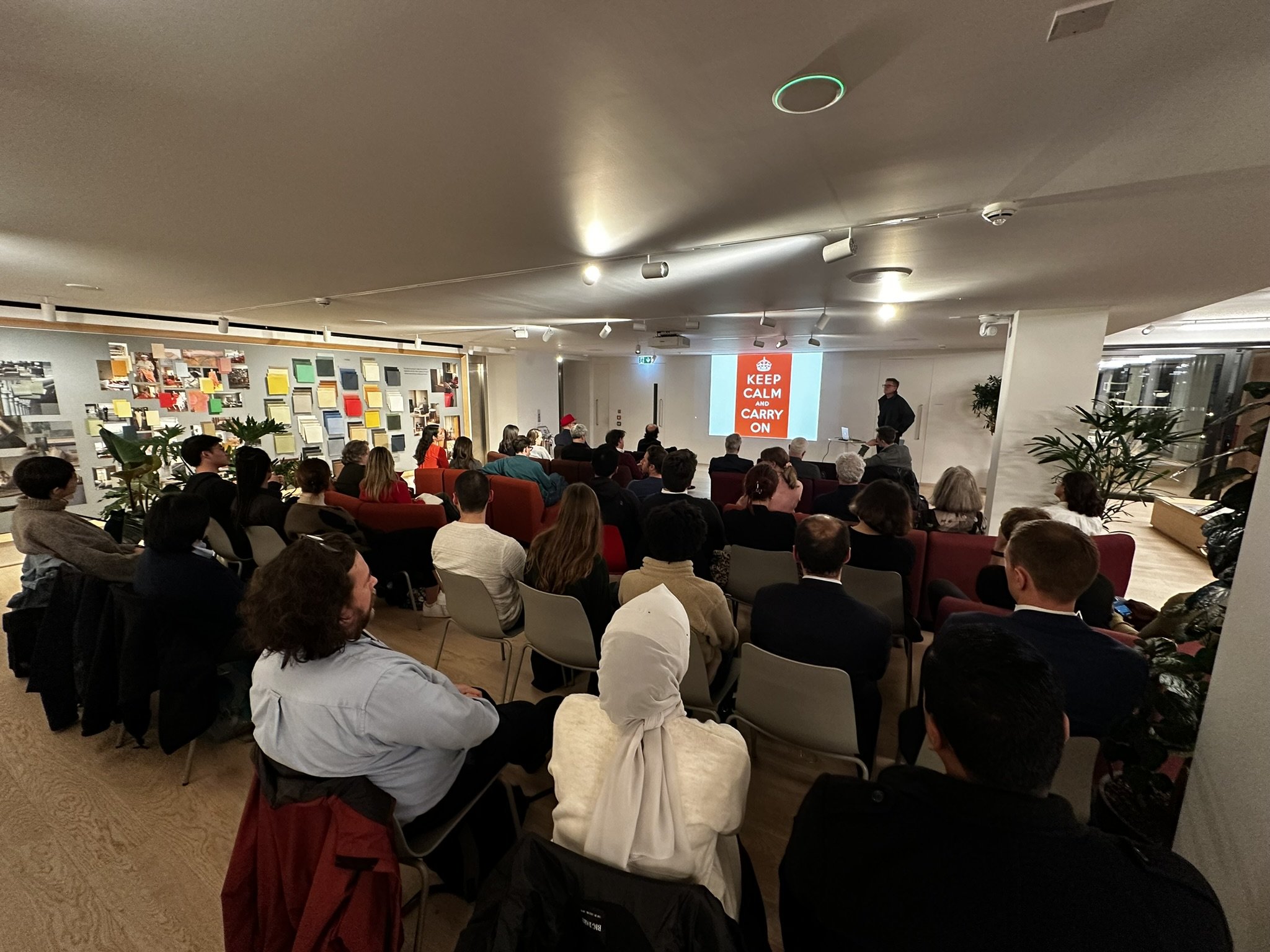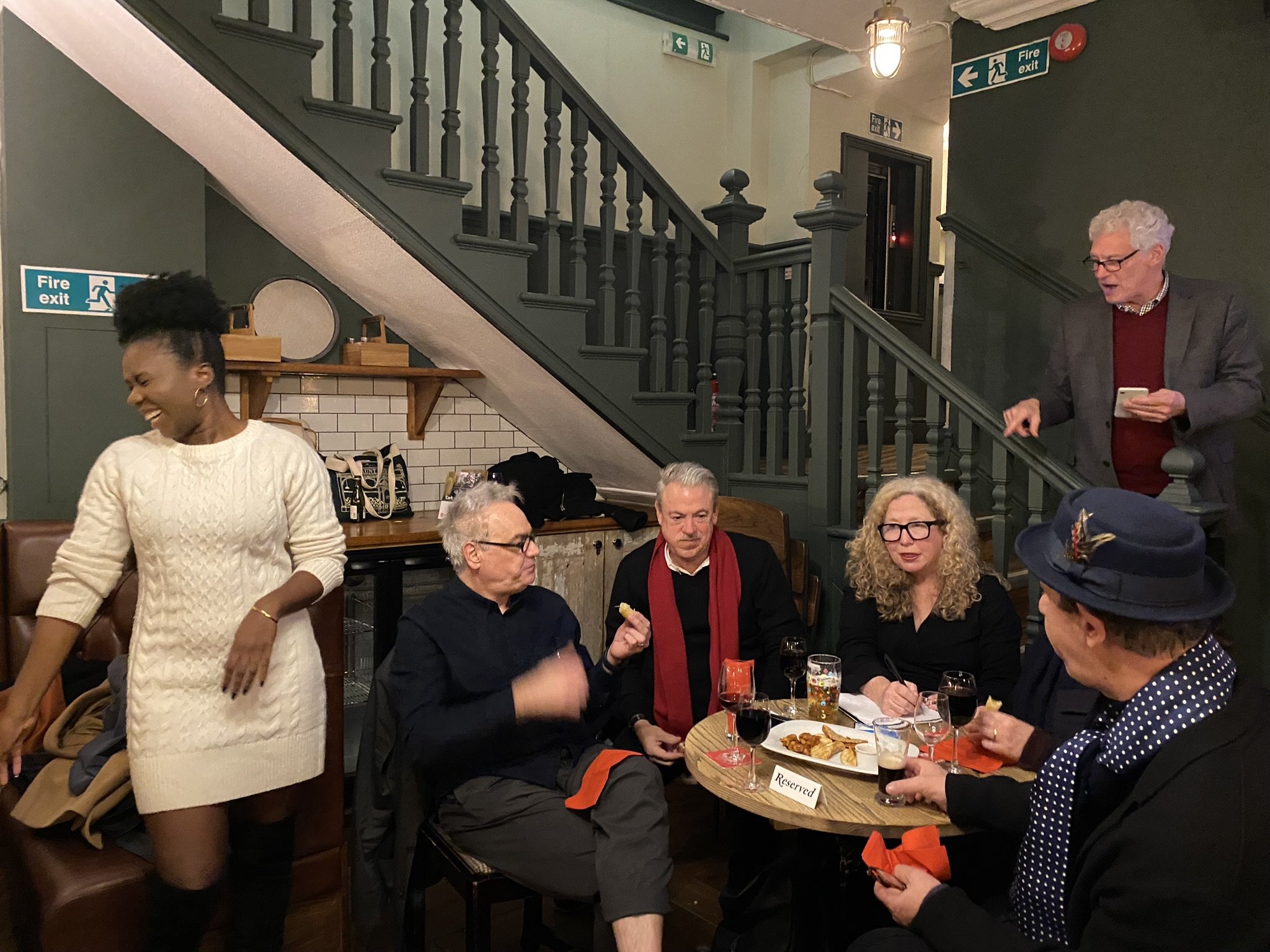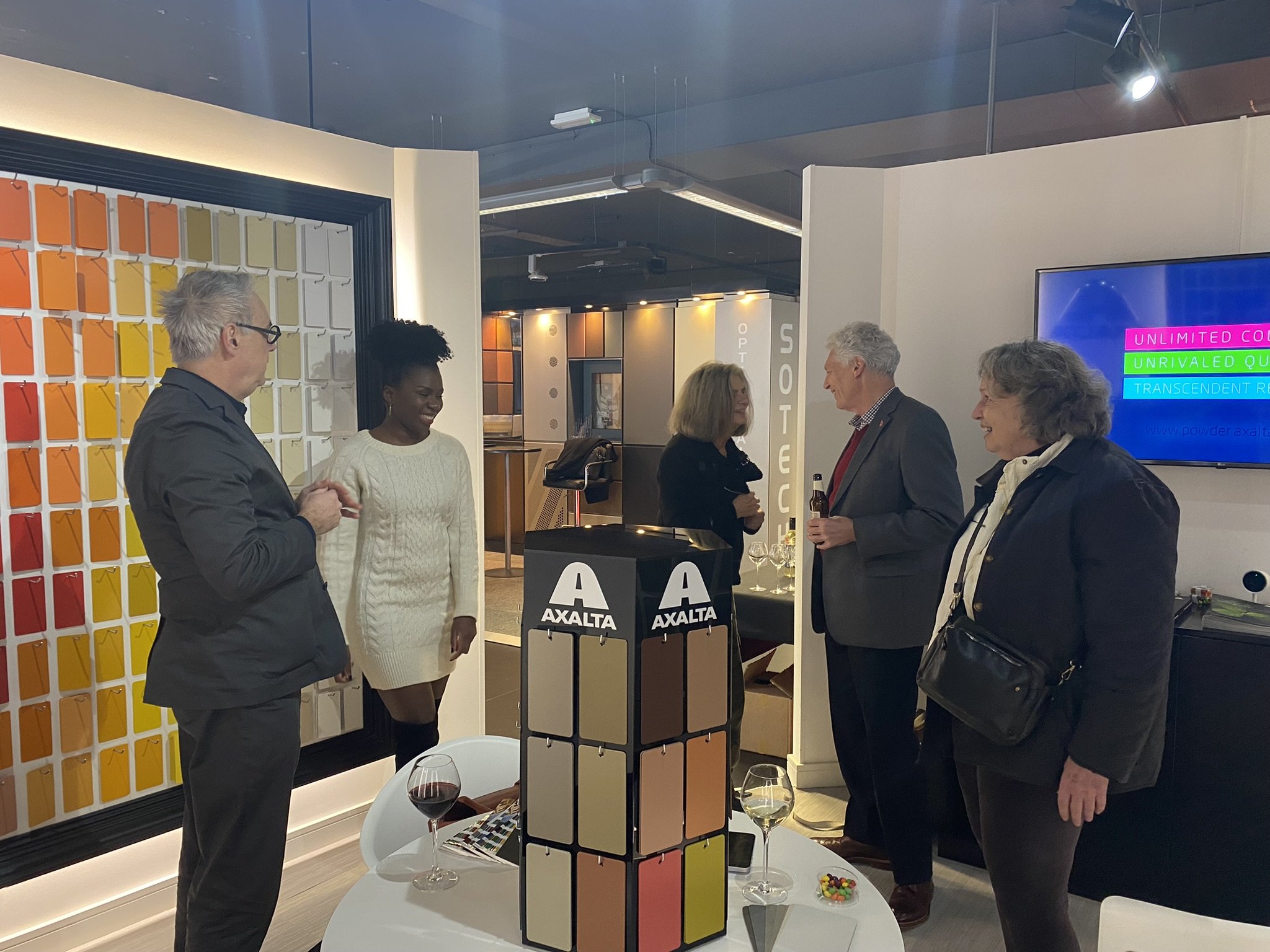Movie Night - New England Modernism
Fiona Mckay
Chris Musangi introduces New England Modernism. Photo by Lana Kustrak.
The grey and dark London winter days call for a visit to the cinema, and those who joined us for our first screening of 2025 definitely had some warmth added to the cold February days. We kicked off this year with a sold-out screening of ‘New England Modernism,’ a compelling documentary that traces the evolution of Modernist architecture in the American Northeast.
The film masterfully chronicles how the United States experienced a dramatic transformation in architectural design between the 1930s and 1970s. Through carefully curated archival footage and stunning contemporary photography, we witness how European Modernism took root in New England soil, beginning with pioneering works like William Lescaze's Field House in New Hartford, Connecticut, and Albert Frey's Ralph- Barbarin House in Stamford.
The documentary's narrative heart centers on the remarkable concentration of talent that emerged in New Canaan, Connecticut during the 1940s. Here, the legendary "Harvard Five" - Marcel Breuer, Landis Gores, John Johansen, Philip Johnson, and Eliot Noyes - established what would become a crucible of Modernist innovation. Their presence attracted other visionary architects including Victor Christ-Janer, Andrew Geller, and Edward Durell Stone, whose collective work would reshape the architectural landscape of New England and beyond.
What makes this film particularly poignant is its exploration of preservation versus progress. While celebrating these revolutionary designs that still inspire architects worldwide, it also confronts the ongoing challenges these architectural treasures face from redevelopment pressures. The documentary serves as both a celebration of this remarkable period and a call to protect its legacy.
The film was well received and the debate that followed was engaging. Some sentiments were that it would be important for the public to see this documentary, a coffee table book of all the featured buildings and their architects would be nice, and it was interesting to see modernist buildings from the context of high-end residences, as opposed to social housing as is common in the UK.
One of the questions asked during the discussion was about the length, which was longer than our usual screenings, and if this documentary was a series. As a follow up, Director Jake Gorst responded:
“Regarding the length, this film was originally going to be a miniseries, but due to a 2-year COVID production shutdown and discussions with the executive producer it was decided that we would make it one solid feature-length documentary. It is lengthy, but we have been marketing it as a “deep dive” into the history of modernism in New England. Believe it or not, we’ve had people complaining about things we left out!
I had actually trimmed about a half hour out of the original cut to get the film to the length it is now. And I’m taking those deleted sequences and incorporating them into a short film called ‘Curating Modernism’ about various forms of preservation, which we will release later this year.“
Special thanks to Jake Gorst of Mainspring Narrative Films for making this film available to the AIA UK before its London Premiere in June this year. (Watch out for news about Curating Modernism on Mainspring Narrative’s website HERE.) Many thanks for your continued support of our movie night series, and we look forward to having you join us for our next screening: ‘Green Over Grey,’ on Tuesday 18 March.
Written by Chris Musangi, AIA
Photo by Lana Kustrak.


















